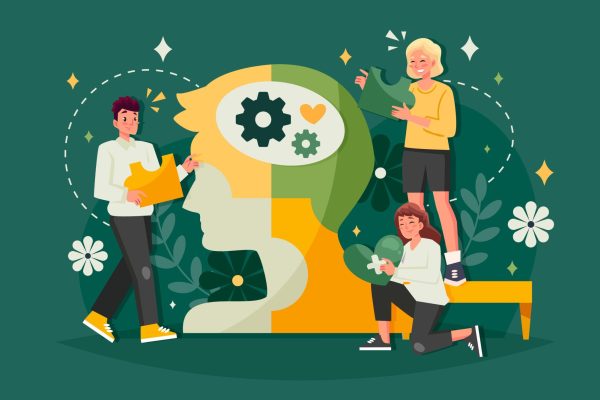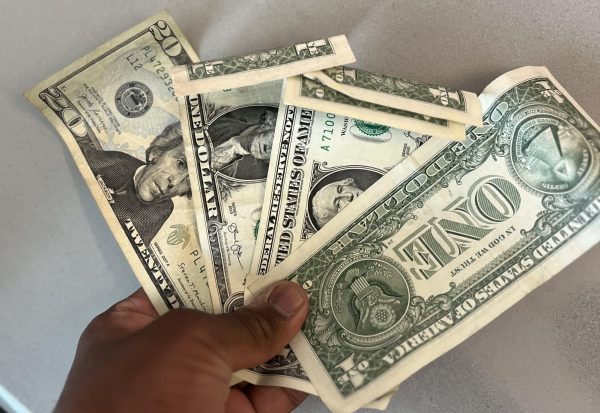My Family’s Views on Reparations
“It’s impossible to imagine America without the inheritance of slavery,” saidTa-Nehisi Coates to Congress during a hearing on the importance and the need for reparations. As an African-American, I can guarantee that slavery has been prevalent in my bloodline. With the lack of documentation of slaves, it is difficult for Black Americans to definitively trace their ancestry. This may lead to a lack of connection between Black people and their slave history. Despite this, some of us feel the necessity for reparations, as a form of making up for the injustices that have happened to us.
Reparations are defined as “the making of amends for a wrong one has done, by paying money to or otherwise helping those who have been wronged.” In the context of this article, the “wrong” is 500+ years of racial injustice in this country against African-Americans. The “paying money” has been proposed in many different forms: reduced tuition for black students, a tax break for Blacks, and plenty of others.
To better understand this topic and provide insight, I wanted to see how someone that has witnessed firsthand the struggles that African-Americans have faced, and how that experience affects their opinion on reparations, I interviewed my grandmother, Gail Brown. She provided some information on our family’s history and her personal encounters with discrimination in our country.
I spoke with her on the phone, as she lives in Florida. I started off by catching up, letting her know how I was doing in school and asking how distant relatives were doing. Then, we got into the real conversation.
“We come from a proud family with a rich history. There’s a lot of love in this family. Your grandfather and I love you very much.”
She made sure to start with this assertion. She wanted to remind me that no matter the problems or troubles our family has endured, and no matter the generation, we still care for each other and are able to spread positivity and love.
“Our family has a history with slavery, like most African-Americans. My momma and daddy, and your grandaddy’s momma and daddy, and our grand mommas and grandaddys saw slavery firsthand. My family comes from Georgia, you know we still have family in Rhine and Savannah. Those are both areas where slavery was very common. Your grandaddy and I grew up during the beginning of Jim Crow and segregation.”
Learning about slavery and Jim Crow and other parts of my people’s struggle doesn’t seem real until you see a living, breathing testimony to these hardships. We discussed how her situation as a Black woman during this time affected the way she went about life.
“I went to all-black schools growing up, and there were areas my brother and I weren’t allowed to go, even when we moved down to Florida. I remember the Grand Dragon, which was the leader of the KKK, and the rest of the members putting up burning crosses down the turnpike, saying that black people weren’t welcome. All of this made me and my brother see the need to do well in school so we could do good for our people and help change the way people thought about Black people.”
This struggle provided motivation for my grandparents to live their lives with pride and accomplish many things. My grandmother was an esteemed nurse before retiring, and studied many topics in medicine, specifically PMS symptoms. She studied at the Texas Woman’s University in the 1960s, a time where it was difficult for both Blacks and women to be taken seriously in a professional setting.
“I think our people have done just fine without reparations. Your grandaddy and I were both able to lead successful lives that we’re very proud of. I was able to get a degree and have a career, your grandaddy fought for our country. We’ve faced slavery, Jim Crow, and now the state of our nation today, all on our own.”
My grandma feels that it’s our people’s own responsibility to uplift ourselves. She doesn’t see it wise to rely on the government to decide our fate and fortunes.
Understanding how primary witnesses of the problems we associate with, and listening to them recall and explain those instances can help focus on the problems of inequality we still face, and how to combat them in the future. In my grandmother’s eyes, it means using everything that is stacked against you to motivate you into proving everyone else wrong, for your own sake and for the sake of your people.
Your donation will support the student journalists of Carnegie Vanguard High School. Your contribution will allow us to cover our annual website hosting costs and fund field trips, competition fees, and equipment. We appreciate your support!

Hey y'all! I'm Ash, and I'm a staff writer for Upstream News. It's a great way for me to stay updated and connected with the school and the world. ...





